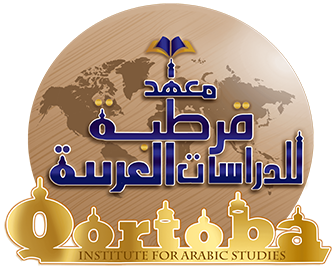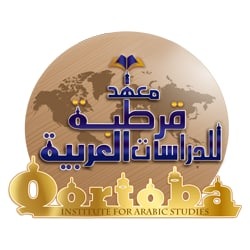A Comparison between Arabic and English
Language is one of the most important means of communication between humans, and each language is characterized by a unique set of letters, sounds, and words. In this article, we will compare Arabic and English in terms of the use of vocal apparatus capabilities and the diversity of their vocabulary. We will also review the reasons why the Arabic language is superior to the English language in these two important aspects. Body Letters and Sounds The Arabic language is characterized by the diversity of its letters and sounds, as it contains special Arabic letters that are difficult to pronounce, such as the letters “ع,” “غ,” and “ق.” Thanks to this diversity, the number ranges from more than 10 million words and meanings, while the English language contains about 350,000 words and meanings, according to the largest Oxford dictionary ever produced. This great difference between the content of the two languages is evident from the words to the ages of the two languages, as there is a huge difference between the ages of each of them.
Some examples of the difference in pronunciation between letters in the two languages are:
- The letter خ (kh) in the Arabic language is a sound in the middle of the throat, while there is no similar sound to it in the English language.
. The letter ث (tha) in the Arabic language is a stressed sound on the teeth, while the letter “tha” in the English language, for example, in the word “think,” is pronounced differently.
. The letter ج (j) in the Arabic language is a hoarse sound, while the letter “j” in the English language, for example, is in the word jacket is pronounced differently.
The Arabic language can express many concepts and sounds that the English language lacks. For example, the Arabic language can distinguish between stressed and unstressed letter sounds, while the English language lacks this distinction. Words: The Arabic language is also distinguished by the diversity and richness of its vocabulary, as it contains a huge number of words that express multiple ideas and concepts. The Arabic language is one of the richest languages in the original and derived Arabic vocabulary.
The differences in vocabulary between Arabic and English are vast and numerous. Here are some key differences:
- Linguistic origins: Arabic belongs to the Semitic language family, while English belongs to the Germanic language family. This leads to differences in words, grammar, and structures.
- Spelling and Pronunciation Arabic has a different phonetic system than English. Some characters and phonemes may not be present in the English language, and vice versa.
- Linguistic rules: Linguistic rules differ between the two languages. For example, the Arabic language has a complex system of parsing and word formation, while the English language depends on simpler rules.
- Words and vocabulary: There are differences in vocabulary between the two languages. Some words may be similar or shared. But there are also many words that have different meanings or are used completely differently.
- Culture and Idioms: There is a difference in the expressions and terms used in the two languages based on culture and tradition.
When you look at the Arabic language and the English language, we find that there is a difference in dealing with masculine and feminine vocabulary in the language. In Arabic, the gender of the word is determined by the tanween of Allah to indicate the feminine. While in English there is no similar system to pronounce words to indicate gender,.
In Arabic, tanween is used to determine the gender of words. For example, we find the words “book” (masculine) and “writing” (feminine). This means that when we want to refer to the masculine book, we use “the book,” and when we mean the feminine book, we use “the writing.”
In English, there is no similar system for pronouncing words to indicate gender. Feminine possessive pronouns are usually used. Such as “her” to refer to feminine things or beings, and masculine possessive pronouns such as “his” to refer to things or beings Note: Sometimes the general singular noun is used to refer to objects without distinction of gender.
For example, when we say the book is on the table, we use the general singular noun book without gender distinction. When you say, “Her book is on the table,” we use the feminine possessive pronoun “her” to refer to the feminine book.
This difference in masculine and feminine vocabulary reflects differences in structure and language use between Arabic and English. This understanding can help learners deal effectively with both languages and understand the cultural differences associated with them.
The Arabic language has been dominant and the language of science for more than 1,300 years.
It was the language of scholars and the language of knowledge and philosophy, and most of the writings of scholars and researchers were in Arabic.
It has expanded greatly and developed a system of dotting letters to distinguish between them, which has led to its spread very widely throughout the world.
Therefore, the Arabic language can accurately and clearly express many concepts that may be difficult to translate into English. Conclusion Based on what has been mentioned, it can be said that the Arabic language is superior to the English language in using the capabilities of the vocal apparatus and the diversity of its vocabulary. The Arabic language is characterized by the diversity of its letters and sounds, which enables it to express more precise and detailed concepts. The Arabic language also contains a large number of words that cover a wide range of concepts. Therefore, the Arabic language is considered unique and distinct in these two aspects, which enhances its value and importance as one of the most complex and rich languages in the world.
But on the other hand, English is considered the language of this era. It is considered the programming language and the language of the Internet.
This has led to its spread in a very, very large way, as many countries these days teach English as a second language in schools. It is considered the language of science these days because many advanced writings and research are written in English. The method of teaching English has also developed, as the language is learned online from home with complete ease. which also helped in its spread greatly, as English is learned for work, travel, and study.




